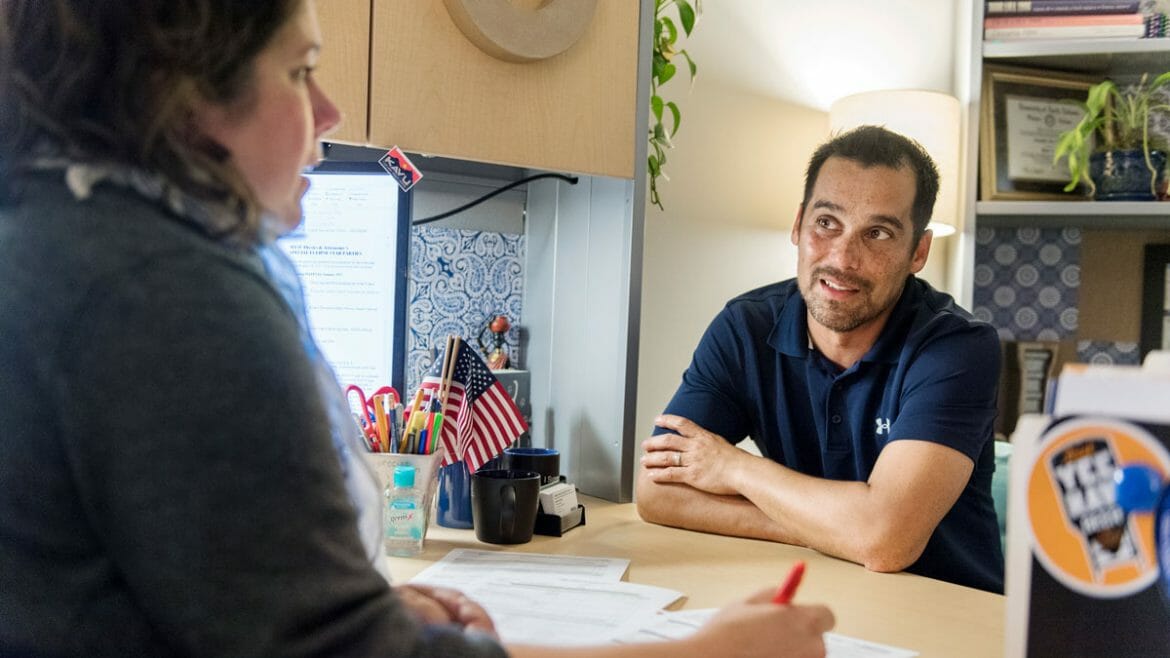Academic advisors have one of the most important jobs on campus. They’re along for the entirety of your rollercoaster ride through college, helping you to not only start off on the right foot, but to also finish strong and graduate. While thee are always going to be difficult decisions to be made during this busy time of your life, MTSU’s stellar group of advisors do their best to give you the best college experience possible. Despite this, it can still be easy to find yourself intimidated when you’re walking into that advising office.
As is the case with most meetings you’ll encounter in life, the best way to not feel intimidated is to prepare yourself. Putting yourself in the right mindset will allow your advisors to provide the most help and put you in the perfect place to succeed. So without further adieu, here are some friendly tips from your academic advisors and the MTSU Student Voice!
The clock is ticking!

It should certainly go without saying, but please show up on time to an advising appointment. Better yet, come 5 minutes early. Not only is it a general inconvenience to your advisor, but you’re also taking valuable time away from the meeting itself. A good, productive meeting should use up most of the allotted time, so every second that you lose by showing up late is crucial. You typically may take less than 10 minutes for an appointment, but that isn’t the goal.
“It is our expectation that students come into their appointments prepared for a discussion, rather than just asking for and being handed a list of courses for the upcoming term’s registration,” says Jennifer Danylo, Advising Manager for the College of Basic and Applied Sciences.
What she’s saying is that advising appointments shouldn’t be a 5-minute one-sided lecture over what classes you need to take. It should be a two-way discussion about your college experience as a whole, asking questions and laying down a solid path to getting your degree and the life beyond it.
Speaking of time, have you made your next appointment? The closer we get to the end of the semester, the more rapid your advisor’s schedule will fill up. Don’t settle for cramming an appointment into your schedule at the last minute! Start early and find a time that gives you an opportunity to prepare and plan ahead.
When in doubt, ask questions!
Your advisor may know a lot about MTSU and how to get from point A to point B, but they definitely can’t read your mind.
“Come prepared with questions and don’t be afraid to ask them. Let us know if we start discussing things with which you aren’t familiar. We don’t know what you don’t know,” says Amie Donahue, an academic advisor for the Jones College of Business.
It’s true, they don’t know what you’re confused about until you start asking questions. See a program or class that could be beneficial to you? Not sure what your next step is to graduate? Completely lost in a class and want to know what your options are? ASK! If you don’t know the answer to a question, your advisor will either have an answer on hand or can quickly direct you to someone who does. Otherwise, you may miss out on a big opportunity or make a mistake when you register for classes.
Don’t worry about asking stupid questions, though. Advisors understand the confusions that come with registration, graduation, and financial aid. There isn’t a single alternate universe where they’d rather you hold a question in out of fear of sounding stupid. The earlier you ask the question, the sooner you won’t have to worry about the answers. We’ve all been there, trust me. Am I actually talking about myself and hoping people find this content to be relatable? Absolutely.
A little research goes a long way!
Yes – this article has focused heavily on the fact that advisors have a vast bank of knowledge and advice to help you along in college. This may sound strange at first, but start out by trying to figure this stuff out on your own. You aren’t trying to rid yourself of the need for an advisor, in fact, you’re actually helping them to better help you.
If you have a basic idea of what’s required to get your degree and explore your options on your own first, you can come up with great questions to ask during the actual meeting. You’ll also have more time to think about the ways that different decisions will impact your academic life. Understanding the mechanics of getting a college degree opens up more opportunities and allows you to find more importance in your classroom assignments on a daily basis.

Photo by J. Kelly Brito on Unsplash
Another business advisor, Abby Davis, wraps things up very nicely. If you read one paragraph in this article, make sure that it’s this one (but hopefully, with my strategic placing of this, you’ve already read up to here):
“It’s important for students to plan in advance and think about any questions or concerns that need to be addressed during the appointment — and bring a list of these items to be discussed. Proper planning and punctuality will allow advisors to better assist students and also allow for time to get to know one another better. Advisors enjoy building relationships with advisees and want to see these students get the most out of their educational experience!”
So, get out there and build that relationship with your advisor. Do your research, show up on time, ask the right questions, and you’ll be walking across the stage with your degree before you know it!
Author Kobe Hermann is a junior at MTSU, majoring in management in the Jones College of Business and minoring in business administration. The views and opinions expressed above are his own and don’t necessarily reflect the official policies or positions of Middle Tennessee State University.


COMMENTS ARE OFF THIS POST